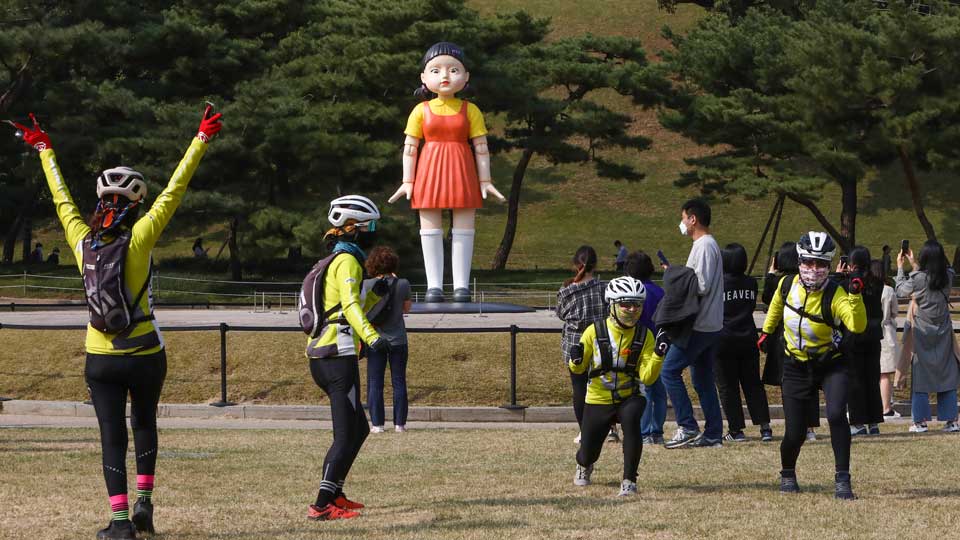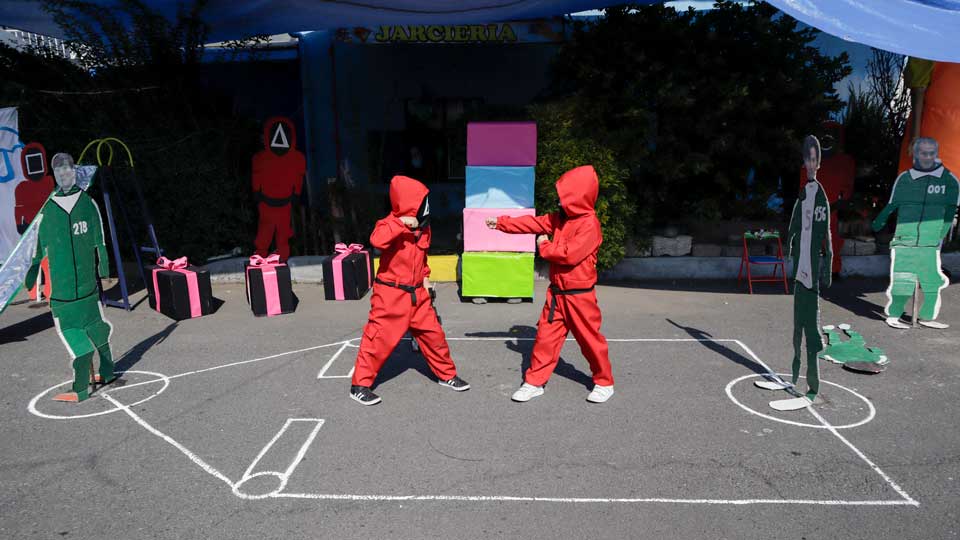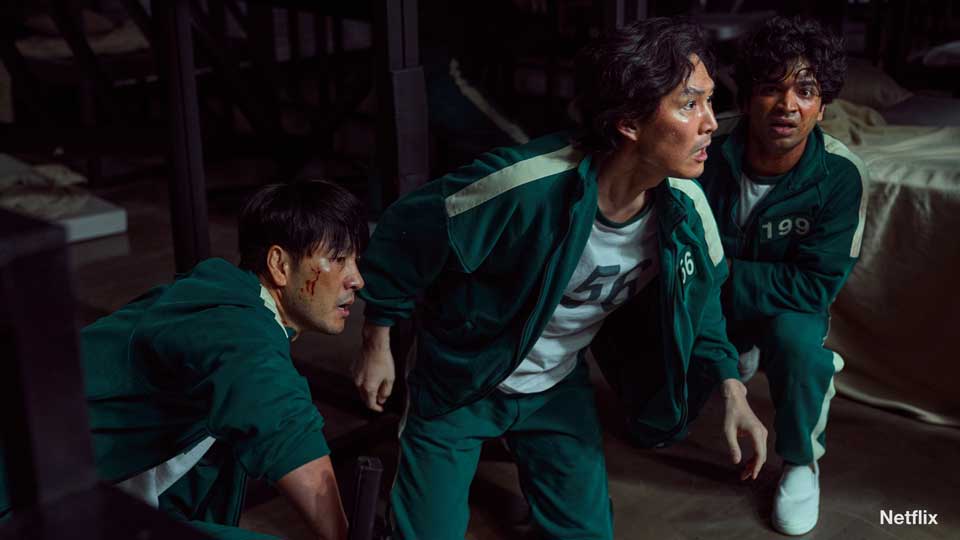Netflix says more than 140 million people have watched their series, which features 456 financially strapped characters who compete in live-or-die games to win $40 million in prize money.
In the first episode, viewers see the main characters in their childhood playing the real Squid Game in the twilight.
The game was a popular pastime in South Korea in the 1970s and 80s.
Two teams would face off on a playground where a squid-like pattern was drawn in chalk. The offense tries to break through the defense and wins if it steps on the squid's head.
The game is just one of many nostalgic tropes used in the show. The larger-than-life animatronic doll Younghee that appears in first story is based on a character in Korean school textbooks.
In the drama, competitors play a game of "Red Light, Green Light" with the robot, with their lives at stake.

Tourist spot reaps the rewards
At the Jangsaengpo Whale Culture Village in the city of Ulsan, visitors can try many of those games in a replica of a traditional village.
One of its operators, Kang Myung-won says the show sparked a sudden surge in interest in their park.
He says they've been getting about twice as many visitors as they used to, despite the impact of the coronavirus pandemic.
"At first, we were wondering why suddenly so many people were coming," says Kang. Then he overheard people talking about the show. Some even called the park a "sacred place."

"There are many games I could relate to," says one woman who took her daughter to the Village. "But kids don't understand them. I enjoyed explaining and playing the games with her."

A bleak vision of dystopia
While the memories that the show evokes are fond and nostalgic, the story itself is violent.
Kyung Hyun Kim, professor of East Asian studies at the University of California, says the childhood games are a vehicle to help viewers relate to the dark themes of injustice and the widening wealth gap.
"This series is a very straightforward critique of neoliberal capitalism," says Kim. "The creators tried to marry the bleak, dystopian content to an innocent children's game, which made the theme accessible."
And that device worked so well it has sparked a wave of nostalgia for more innocent pastimes.

Also watch video: S.Korea 'Squid Game' Boom Sparks Surge in Nostalgia (03:33)




